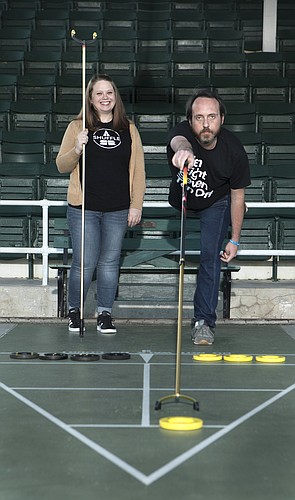- December 15, 2025
-
-
Loading

Loading

Much like bocce, cornhole, pickleball, tennis and other social, non-contact outdoor sports, shuffleboard experienced a surge of interest during the COVID-19 crisis. The sport was already popular in the region, thanks to an abundance of 55+ communities and venues like the St. Petersburg Shuffleboard Club — the oldest and largest such facility in the world.